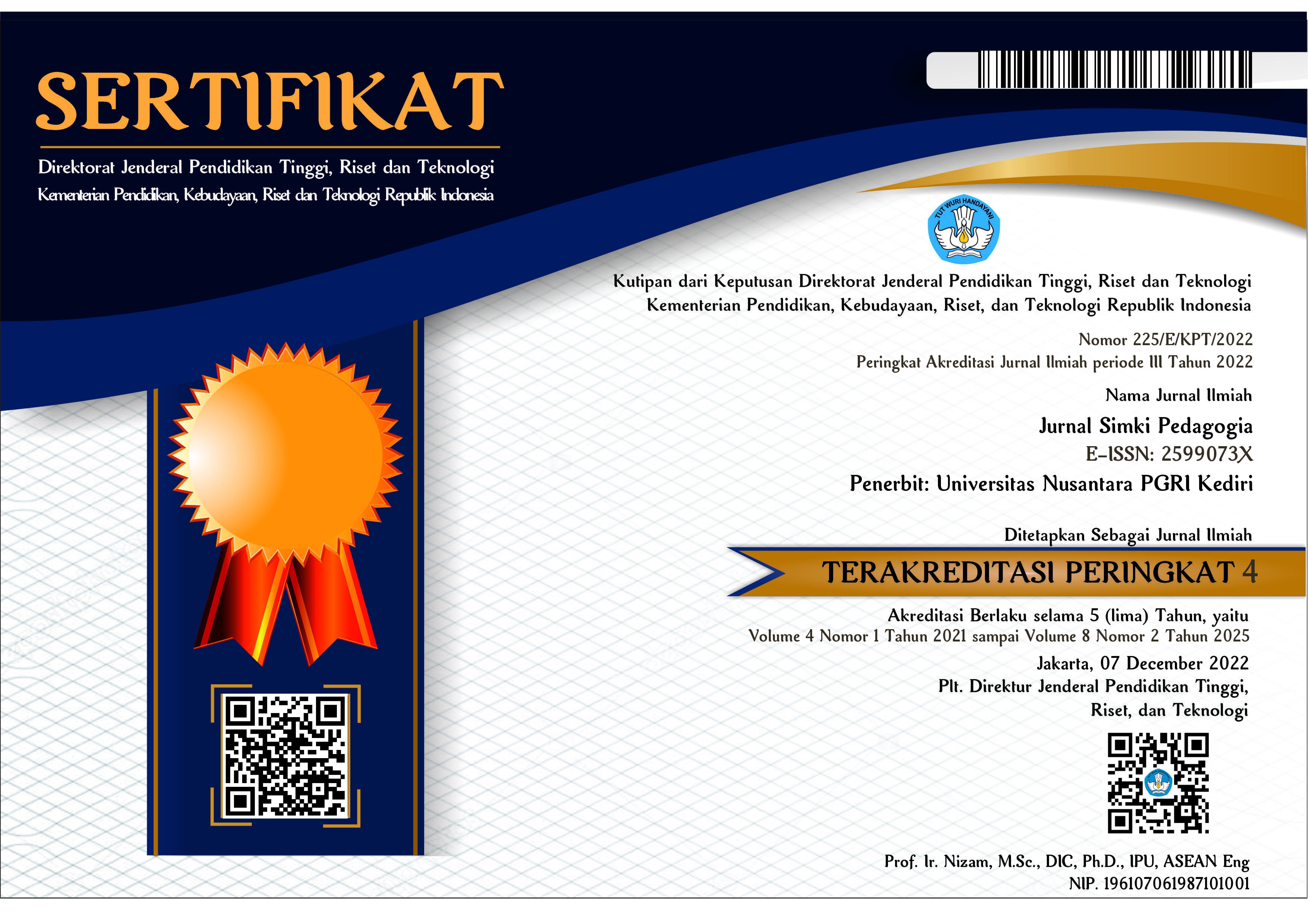Manajemen Strategi Pengelolaan Kelas dalam Meningkatkan Kualitas Layanan Pendidikan
Studi Deskriptif Analisis di SD Negeri Sindangraja 3, SDN Gunung Kembang, dan SD Islam Al Azhar 18 Cianjur
 Abstract views: 2796
,
Abstract views: 2796
,
 PDF (Bahasa Indonesia) downloads: 3414
PDF (Bahasa Indonesia) downloads: 3414
Abstract
This study aims to describe the planning, implementation, evaluation, constraints, and results of implementing classroom management strategies in improving the quality of educational services. This data was obtained through classroom teacher interviews, the results of which were supporting data from the main source and observations regarding classroom management. After collecting data, qualitative data analysis was carried out on the instrument. The results showed that the elementary school teachers studied had implemented the planning, implementation, and evaluation of classroom management strategies. Class management strategy constraints that occur can be overcome properly. The results of implementing the classroom management strategy can be seen from the improvement in the quality of student learning, teacher professionalism, and the school's physical environment.
Downloads
References
Anggraini, R. (2020). MANAJEMEN PENGELOLAAN KELAS. Pendidikan Aud, 1(mei 2020).
Arikunto, S. (2009). Prosedur Penelitian Suatu Pendekatan Praktek. Jakarta: Rineka Cipta.
Djamarah, S. B., & Aswan, Z. (2006). Strategi Belajar Mengajar (Edisi Revisi). In Jakarta: Rineka Cipta.
Greene, B. A., Miller, R. B., Crowson, H. M., Duke, B. L., & Akey, K. L. (2004). Predicting high school students’ cognitive engagement and achievement: Contributions of classroom perceptions and motivation. Contemporary Educational Psychology, 29(4), 462–482.
Mansyur, U. (2016). Inovasi Pembelajaran Bahasa Indonesia. Retorika, 9.
Mulyadi. (2018). Diagnosis Kesulitan Belajar di Sekolah. Jurnal Tarbiyah Al-Awlad, 8.
Permana, E. P. (2018). Pengaruh Media Sosial sebagai Sumber Belajar IPS Terhadap Motivasi Belajar, Kemampuan Berpikir Kritis dan Berpikir Kreatif Siswa Sekolah Dasar. PINUS: Jurnal Penelitian Inovasi Pembelajaran, 4(1). https://doi.org/10.29407/pn.v4i1.12431
Rosyada, D. (2004). Paradigma Pendidikan Demokratis, Sebuah Model Pelibatan Masyaraat dalam Penyelenggaraan Pendidikan. Jurnal Pendidikan, 53(9).
Rusman. (2012). Model-model Pembelajaran. Jakarta: Rajawali Pers.
Sariyatun, Suryani, N., Sutimin, L. A., Abidin, N. F., & Akmal, A. (2021). The effect of digital learning material on students’ social skills in social studies learning. International Journal of Instruction, 14(3). https://doi.org/10.29333/iji.2021.14324a
Sugiono. (2016). Metode Pendekatan Kuantitatif, kualitatif dan R&D. In Bandung: Alfabeta.
Wati, A. R. Z., & Trihantoyo, S. (2020). Strategi Pengelolaan Kelas Unggulan Dalam Meningkatkan Prestasi Belajar Siswa. Jurnal Dinamika Manajemen Pendidikan, 5(1). https://doi.org/10.26740/jdmp.v5n1.p46-57
Wheelen, T. L., & Hunger, J. D. (2008). Strategic management and business policy - Acheiving Sus. In Policy.
Zahroh, L. (2021). PENDEKATAN DALAM PENGELOLAAN KELAS. Jurnal Keislaman, 1(2). https://doi.org/10.54298/jk.v1i2.3364
Copyright (c) 2022 Muhamad Kosim Abdulah, Ikka Kartika Abbas Fauzi, Adjat Sudrajat

This work is licensed under a Creative Commons Attribution 4.0 International License.

Jurnal Simki Pedagogia : https://jiped.org/index.php/JSP/index is licensed under a Creative Commons Attribution 4.0 International License.
















